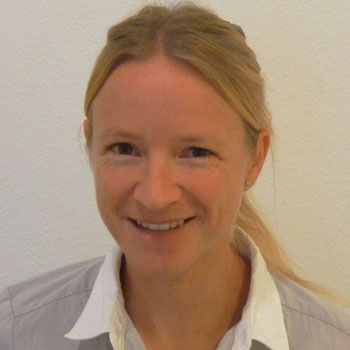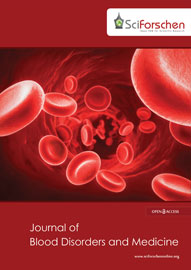
Group leader
- :+41 79 507 46 77
Department of Infectious Disease and Cancer Research
University Children’s Hospital Zurich
Switzerland
Education
| 2010-2013 | Postdoc, Institute of Immunology, University of Oslo and CIR Centre of Excellence, Oslo, Norway |
| 2006 -2010 | PhD in Immunology, University of Zurich, Swiss Institute of Allergy and Asthma Research, Davos, Switzerland. |
| 2001-2006 | Master in Biochemistry and Molecular Biology, ETH Zurich, Zurich, Switzerland |
Biography
Simone Bürgler obtained her Master’s degree in Biochemistry and Molecular Biology at the ETH Zurich, Switzerland in 2006 and received her PhD in Immunology at the Swiss Institute of Asthma and Allergy Research (SIAF) in Davos, Switzerland in 2010. From 2010 to 2013 she worked as a postdoctoral researcher at University Hospital Oslo, Norway. In 2013, she joined the Institute of Experimental Infectious Diseases and Cancer Research (EICR) at the University Children’s Hospital in Zurich, Switzerland, where she started her own research group in 2015.
Research Interest
In her research, Simone Bürgler focuses on the interaction of T helper cells with malignant B cells. During her postdoctoral stay she and her co-workers could show that T helper cells can support growth of chronic lymphocytic leukemia (CLL) cells (1,2,3). Together with her current group sheis now interested in the interaction of T helper cells with precursor B acute lymphoblastic leukemia (B-ALL) cells and multiple myeloma (MM) cells. Furthermore, she studies the interaction mechanisms of T helper cells with Epstein-Barr virus (EBV)-transformed B cells and EBV-associated lymphoma cells such as Burkitt’s lymphoma cells or Hodgkin lymphoma cells.
Professional Activities:
2015-current: Group leader, Institute of Experimental Infectious Diseases and Cancer Research, University Children’s Hospital Zurich, Zurich, Switzerland
Publications
- Bürgler S. Role of CD38 expression in diagnosis and pathogenesis of chronic lymphocytic leukemia and its potential as therapeutic target. Critical Reviews in Immunology, Invitational Review, Submitted
- Parente-Ribes A1, Skånland SS1, Bürgler S1, Os A, Wang D, Bogen B, Tjønnfjord GE, Taskén K, and Munthe LA Spleen tyrosine kinase (Syk) inhibitors reduce CD40L-induced proliferation of chronic lymphocytic leukemia cells but not normal B cells. Haematologica 2015 Nov 20, 1 Contributed equally
- Soyka MB, Holzmann D, Basinski TM, Wawrzyniak M, Bannert C, Bürgler S, Akkoc T, Treis A, Rückert B, Akdis M, Akdis CA and Eiwegger T The induction of IL-33 in the sinus epithelium and its influence on T-helper cell responses. PLOS ONE 10(5):e0123163 May 2015
- Bürgler S, Gimeno A, Parente-Ribes A, Wang D, Os A, Devereux S, Jebsen P, Bogen B, Tjønnfjord GE and Munthe LA Chronic lymphocytic leukemia cells express CD38 in response to Th1 cell derived Interferon-by a T-bet dependent mechanism. J Immunol 194(2): 827-35 Jan 2015
- Os A1, Bürgler S1, Parente A1, Funderud A, Wang D, Thompson K, Tjønnfjord GE, Bogen B and Munthe LA Chronic lymphocytic leukemia cells are activated and proliferate in response to specific Th cells. Cell Rep 4(3): 566-577 Aug 2013,1 Contributed equally
- Meyer N, Christoph J, Makrinioti H, Indermitte P, Rhyner C, Soyka M, Eiwegger T, Chalubinski M, Wanke K, Fujita H, Wawrzyniak P, Bürgler S, Zhang S, Akdis M, Menz G, Akdis CA Inhibition of angiogenesis by IL-32: possible role in asthma. J Allergy Clin Immunol 129: 4. 964-73.e7 Apr 2012
- Akdis M, Burgler S, Crameri R, Eiwegger T, Fujita H, Gomez E, Klunker S, Meyer N, O'Mahony L, Palomares O, Rhyner C, Ouaked N, Schaffartzik A, Van De Veen W, Zeller S, Zimmermann M, Akdis CA Interleukins, from 1 to 37, and interferon-γ: receptors, functions, and roles in diseases. J Allergy Clin Immunol 127: 3. 701-21.e1-70 Mar 2011
- Zimmermann M, Koreck A, Meyer N, Basinski T, Meiler F, Simone B, Woehrl S, Moritz K, Eiwegger T, Schmid-Grendelmeier P, Kemeny L, Akdis CA TNF-like weak inducer of apoptosis (TWEAK) and TNF-α cooperate in the induction of keratinocyte apoptosis. J Allergy Clin Immunol 127: 1. 200-7, 207.e1-10 Jan 2011
- Burgler S, Mantel PY, Bassin B, Ouaked N, Akdis CA, Schmidt-Weber CB RORC2 is involved in T cell polarization through interaction with the FOXP3 promoter. J Immunol 184: 11. 6161-6169 Jun 2010
- Meyer N, Zimmermann M, Bürgler S, Bassin C, Woehrl S, Moritz K, Rhyner C, Indermitte P, Schmid-Grendelmeier P, Akdis M, Menz G, Akdis CA IL-32 is expressed by human primary keratinocytes and modulates keratinocyte apoptosis in atopic dermatitis. J Allergy Clin Immunol 125: 4. 858-865.e10 Apr 2010
- Siegmund K, Rückert B, Ouaked N, Bürgler S, Speiser A, Akdis CA, Schmidt-Weber CB Unique phenotype of human tonsillar and in vitro-induced FOXP3+CD8+ T cells. J Immunol 182: 4. 2124-2130 Feb 2009
- Burgler S, Ouaked N, Bassin C, Basinski TM, Mantel P-Y, Siegmund K, Meyer N, Akdis CA, Schmidt-Weber CB Differentiation and functional analysis of human T(H)17 cells. J Allergy Clin Immunol 123: 3. 588-95, 595.e1-7 2009
- Ouaked N, Mantel P-Y, Bassin C, Burgler S, Siegmund K, Akdis CA, Schmidt-Weber CB Regulation of the foxp3 gene by the Th1 cytokines: the role of IL-27-induced IL-27-induced STAT1. J Immunol 182: 2. 1041-1049 Jan 2009
- Hasan S, Güttinger S, Mühlhäusser P, Anderegg F, Bürgler S, Kutay U Nuclear envelope localization of human UNC84A does not require nuclear lamins. FEBS Lett 580: 5. 1263-1268 Feb 2006

